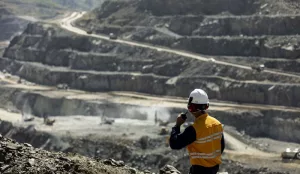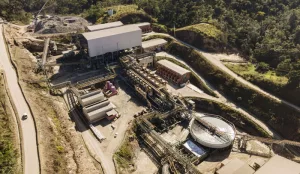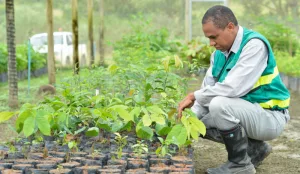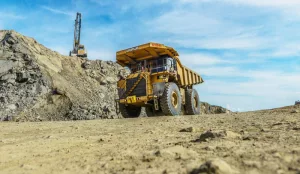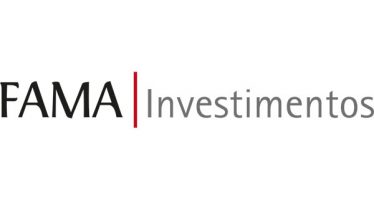Appian Capital Advisory: Sustainability in Mining – Where the Energy Transition Starts
 Although they bring many benefits, mining companies have long been criticised for their environmental practices. Despite its best efforts, the sector has had a less than spotless record of cleaning up after itself. Only recently have miners begun assessing their impact on communities and the surroundings. However, the industry has also moved faster than most to embrace and internalise environmental, social, and governance (ESG) principles and standards.
Although they bring many benefits, mining companies have long been criticised for their environmental practices. Despite its best efforts, the sector has had a less than spotless record of cleaning up after itself. Only recently have miners begun assessing their impact on communities and the surroundings. However, the industry has also moved faster than most to embrace and internalise environmental, social, and governance (ESG) principles and standards.
A timeless truth states that “if it can’t be grown, it has to be mined.” The modern world cannot function without mining, and even that which grows often fails to bear plentiful fruit without a bit of (mined) potash. The mining industry sits at the foundation of countless supply and value chains which would instantly unravel without the bounties extracted from the earth’s crust.
Mining cannot simply be wished away, and paradoxically, it is a driver of sustainability and innovation. In the 2020 Minerals for Climate Action report, the World Bank predicts the production of minerals such as graphite, lithium, and cobalt needs to quintuple by 2050 to meet the demand for clean energy. To deploy wind, solar, and geothermal power and expand energy storage, some three billion tonnes of minerals and metals are needed – all of it mined.
Unearthing Opportunity
Astute investors who look beyond the headlines are tapping into sustainable mining to secure long-term returns that beat most benchmarks. London-based Appian Capital Advisory LLP specialises in providing miners with the financial resources and operational expertise needed to attain and maintain peak performance, whilst unearthing exceptional opportunities for investors. The company deploys unparalleled experts to its two private equity funds that jointly have over $2bn in assets under management.
The Appian Natural Resources Funds I and II have executed fourteen investments, brought seven mines into production, and successfully exited six projects. Appian Capital aims to be the partner of choice in the metals and mining sector by matching quality assets to long-term capital, while providing specialist technical expertise to management teams. Appian’s technical and financial team, sourced from major mining companies, PE firms and multinational investment banks, bundles over 300 years of experience. In Scherb’s words: “We are effectively a private equity firm with a mining company attached. Mining is an incredibly technical sector with high barriers to entry, and we employ, what we call, technical arbitrage, taking a project and maximising the technical elements of operations to maximise value.”
The enviable skillset available to the company has allowed it to consistently deliver superior returns and establish a proven track record of building tangible value within portfolio companies, ensuring that the financial performance of its assets is not dependent on commodity prices.
Sustainable Investing with Appian Capital Advisory
Appian Capital incorporates ESG into all its investment decisions and is an early signatory of the United Nations’ Principles for Responsible Investment (PRI) guidelines, which include the full set of ESG parameters. In Africa, the company partners with the World Bank’s International Finance Corporation (IFC).
The company publishes detailed sustainability reports on all its mines. Its goal of long-term value creation pointedly incorporates lasting partnerships with local communities and a broad ensemble of other stakeholders. Appian’s mining operations provide over 5,000 jobs worldwide and support over 11,000 indirect jobs.
The social dimension involves community infrastructure initiatives such as building schools and health centres and upgrading water supplies. Furthermore, Appian mines help SMEs tap into new business opportunities by proactively partnering with local suppliers and contractors.
Before committing funds to a new or existing project, Appian Capital follows its own ‘360° Due Diligence Process’, which reviews environmental plans, including the vital rehabilitation and closure strategy, and evaluates the strength of the ‘social licence’ i.e., relations between the mine and the local community it operates in.
Juliana Marreco, Appian’s co-head of Clean Energy Solutions, notes that the company is determined to meet its own energy needs with renewables. A push is currently underway to partially supply Atlantic Nickel’s Santa Rita mine in Brazil with solar power. Similarly, Mineraço Vale Verde’s gold-copper mine in the northeast of Brazil is making comparable efforts. At the Santa Rita mine, combined Scope 1 and 2 greenhouse gas (GHG) emissions are slated to fall from a high of 77.4 kt of CO2 to barely 2.4 kt by 2028. The mine is also rapidly moving towards becoming a zero-discharge facility with effluents being continuously reused in a closed circuit.
Case Study
The Santa Rita mine offers an interesting case study on Appian’s investment philosophy and how it translates into operational success. Atlantic Nickel was purchased in 2018 for $68m out of the bankruptcy of Mirabel Nickel, which had invested well over $1bn in developing one of the world’s largest open-pit nickel sulphide mines. High leverage, depressed commodity prices and poor management caused Mirabel Nickel to go under.
To bring the mine back into production, Appian Capital identified numerous opportunities for the optimization of both the mine and plant- such as defining underground resources with the potential to extend mine life from 8 to 35 years. The company is now ready to exit both Atlantic Nickel and Mineração Vale Verde (MVV), and hand both over to an experienced operator, retaining a significant royalty on net smelter returns (NSRs) at the former, and a 35 per cent stream on gold revenues at the latter.
Appian Capital Advisory brought MVV’s Serrote copper-gold project into production in May 2021, months ahead of schedule and almost $50m under the initially budgeted $245m. By funding the mine’s construction and securing attractive offtake terms for its production, Appian unlocked substantial value for its investors.
Going forward, the company seeks to expand its operations by focusing on commodities employed in batteries, electric vehicles, and renewable energy. 65 per cent in Fund I is energy transition linked and Fund II is over 70 per cent invested in energy transition and potash.
You may have an interest in also reading…
FAMA Investimentos: Shared Economy Investment Opportunities that Meet the Highest ESG Standards
If, five years ago someone approached a fund manager and said: “I come from five years in the future and
Santiago Free Zone Corporation – CZFS: Loosens the Bonds, Creating Growth for the North Region & the Country
Santiago Free Zone Corporation (CZFS in Spanish) is a leading national socio-economic development consortium which prides itself on delivering excellence
La Trobe Financial: Experienced Hands, Unblemished Record
Established in 1952 and with $11bn in AUM, La Trobe Financial is one of Australia’s leading non-bank financial institutions specialising














































































